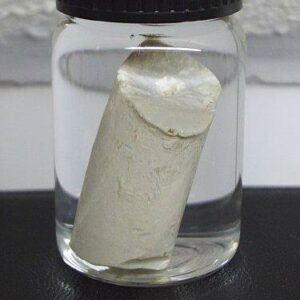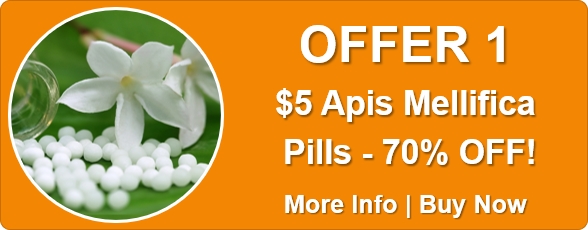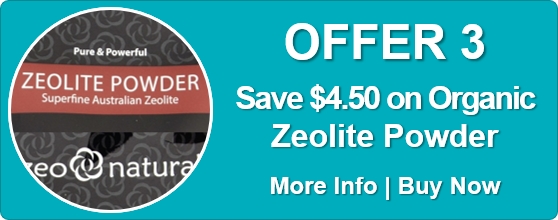Phosphorus (Phos.)
 Phosphorus is a chemical element that exists in combination with other minerals in nature, principally as phosphate salts. As calcium phosphate it is a major component of bones. Its main use is in fertilisers and detergents. White phosphorus is highly reactive and bursts into flames when exposed to warm air hence its name which means “light bearer” in Greek. For this reason is stored in water.
Phosphorus is a chemical element that exists in combination with other minerals in nature, principally as phosphate salts. As calcium phosphate it is a major component of bones. Its main use is in fertilisers and detergents. White phosphorus is highly reactive and bursts into flames when exposed to warm air hence its name which means “light bearer” in Greek. For this reason is stored in water.
Those who need Phosphorus are usually open, impressionable, warm, friendly, and sympathetic people who enjoy company (though some needing Phosphorus may present as apathetic, withdrawn and vague from a spaced-out or foggy feeling, and not wanting company at all). Phosphorus struggles with anxiety that is always much better for company and reassurance – this anxiety can be about anything or everything. Physical complaints often affect the left side of the body first and common problem areas are the lungs, circulatory system, and nerves.
Common Uses
When the remedy matches the symptom profile, Phosphorus has the ability to treat conditions such as anxiety, Alzheimer’s disease, asthma, bronchitis, increased tendency to bleed and bruise, chemical sensitivity and food intolerances, chronic fatigue syndrome, hepatitis, hoarseness and pharyngitis, phobias, pneumonia, schizophrenia and bipolar states, and valvular heart disorders. (Note: This information is drawn from standard homeopathic material medicas. It is not supplied for self-treatment but for information purposes only. Please seek the services of a qualified homeopath if wishing to use homeopathy for these health complaints.)
Important
While the above self-limiting, acute complaints are suitable for home treatment, see your healthcare provider if symptoms worsen or fail to improve. Chronic or persistent complaints, which may or may not be mentioned, require a different treatment and dosage protocol so are best managed by a qualified homeopath for good results.
From the Old Masters
Nash says:
- Tall, slender, narrow-chested, phthisical patients, delicate eyelashes, soft hair or nervous, weak persons who like to be magnetized. Waxy, half anæmic, jaundiced persons.
- Anxious, universal restlessness, cant stand or sit still. < in dark or when left alone, before a thunder storm.
- Burnings prominent in every place, as in mouth, stomach, small intestines, anus, between scapulæ, intense, running up spine, palms of hands, heat begins in hands, spreads to face.
- Craving for cold things, ice cream, which agrees, or cold water, which is thrown up as it gets warm in the stomach. Must eat often or he faints. Must get up at night to eat.
- Sinking, faint, empty feeling in head, chest, stomach and whole abdominal cavity.
- Cough, < twilight till midnight, < lying on left side, > on right side. Right lower lobe most affected.
- Diarrhœa, profuse, pouring out as from a hydrant; watery with sagolike particles or dysenteric, with wide open anus.
- Apathetic, unwilling to talk, answers slowly, moves sluggishly.
- Constipation: fæces slender, long, dry, tough and hard like a dog’s; voided with difficulty.
- Hæmorrhagic diathesis; slight wounds bleed profusely, hæmoptysis; metrorrhagia worse; vicarious, from nose, stomach, anus, urethra in amenorrhœa.
- Cannot talk; the larynx is so painful; cough, going from warm to cold air, laughing, talking, reading, eating lying on left side (Dros., Stan.).
Lippe says:
MIND AND DISPOSITION
- Great excitability ; becomes easily vexed and angry, which makes him exceedingly vehement, from which he suffers afterwards.
- Great anxiety and restlessness, especially when alone, or during a thunder-storm.
- Zoomagnetic condition ; clairvoyance.
- Ecstasy.
- Melancholy depression, sometimes with shedding of tears or with attacks of involuntary laughter.
GENERALITIES
- Sleepiness in day-time.
- Sleeplessness before midnight ; goes to sleep late.
- Wakes frequently in the night.
- Sleepiness with drowsiness (coma vigil).
- Anxious, vivid dreams.
- Frequent waking from feeling too hot without perspiration.
- Somnambulism.
CONDITIONS
- Liability to take cold, and from it stinging and tearing in the limbs.
- Sensitiveness to cool weather and to the open air.
- The head and face symptoms are relieved by the cold air, but the chest symptoms are aggravated by it.
- Aggravation ; in the evening, at night, especially before midnight ; after breakfast ; when alone ; after eating (something warm), when lying on the back or on the left side ; when rising from a seat ; from light ; during a thunder storm ; from a change of weather ; from singing, laughing, strong smells (cough).
- Amelioration ; in the dark ; while lying on the right side ; from rubbing ; after sleeping ; from eating something cold.
- Especially suitable for lean, slender persons.
- In a condition of great debility the person is much easier beneficially affected by Phosphor., being mesmerized before taking the remedy.
- Phosphor, is an antidote to over-doses of Camphor.
Hering says:
MIND
- Stupor, delirium, grasping at flocks.
- Hysterical alternation of laughing and weeping.
- Great indifference ; answers no questions, or replies wrongly.
- Gloomy, taciturn.
- Dejection, thought he would die.
- Fearfulness, as if something were creeping out of every corner.
- Anxious, restless : at twilight ; when alone ; about the future ; during a thunder-storm ; with palpitation.
- Melancholy, sheds tears ; or, with attacks of involuntary laughter.
- Amativeness.
- Apathy ; indifference, even toward his own children.
- Excitable, easily angered and vehement, from which he afterwards suffers.
- Mind is overactive.
- Irritability of mind and body ; prostrated from the least unpleasant impression.
- While reflecting, headache and dyspnœa ; feeling of apprehension at pit of stomach ; weak feeling in head.
- Any lively impression is followed by heat, as if immersed in hot water.
TISSUES
- Ebullitions and congestions.
- Fatty degeneration of liver, heart, kidneys, etc. ; anæmia.
- Chlorosis, with too rapid growth.
- Hemorrhages from internal organs.
- Small wounds bleed much.
- Fungus hæmatodes.
- Sprains ; joints easily dislocated.
- Glands enlarged, especially after contusions.
- Dropsy of the face, hands and feet.
- Swelling of the bones ; necrosis (lower jaw).
- Exostoses, especially of the skull ; tearing, boring pains ; worse at night, or from least touch.
- Hip-joint diseased ; oozing a watery pus.
STAGES AND STATES
- Tall, slender (slim) women ; disposed to stoop.
- Nervous, weak ; desires to be magnetized.
- Grows too rapidly.
Sources
Textbook of Materia Medica by Adolph Lippe M.D. 1886 Publishers: AJ.Tafel
Constantine Hering. 1877. Condensed Materia Medica. Publishers: Boericke and Tafel
E. B. NASH. 1899 Leaders In Homoeopathic Therapeutics. Publishers: Boericke and Tafel







